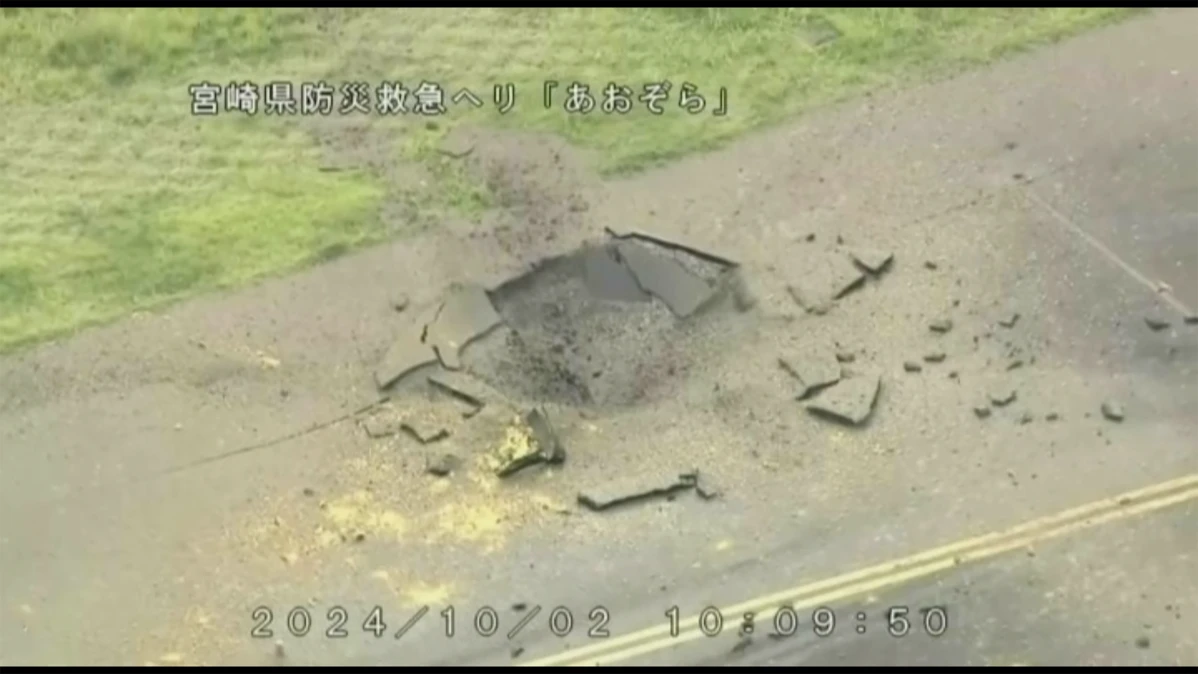Japan Ruling Party Projected to Miss Majority in Election

- Voters in Japan have been rankled by rising prices and the fallout from a party slush fund scandal that helped sink previous premier Fumio Kishida
Japan’s scandal-hit ruling party fell short of a majority for the first time since 2009 in snap elections on Sunday, media projections showed, in a blow to new Prime Minister Shigeru Ishiba.
Worse still, it was touch and go whether Ishiba’s conservative Liberal Democratic Party (LDP) could secure a parliamentary majority with its long-term coalition partner, the Komeito party.
“We are receiving severe judgment,” Ishiba told national broadcaster NHK late Sunday.
Voters “expressed their strong desire for the LDP to do some reflection and become a party that will act in line with the people’s will,” he said.
Former defense minister Ishiba, 67, called the election after being narrowly selected last month to lead the LDP, which has governed Japan for almost all of the past 70 years.
But voters in the world’s fourth-largest economy have been rankled by rising prices and the fallout from a party slush fund scandal that helped sink previous premier Fumio Kishida.
Footage from the LDP headquarters after the polls closed on Sunday showed gloomy faces as the projections based on exit polls said Ishiba’s justice and agriculture ministers were likely to lose their seats.
Ishiba, a self-confessed security policy geek who likes making model planes, had said his target in the election was for the coalition to win a majority.
Missing this goal would seriously undermine his position in the LDP and mean finding other coalition partners or leading a minority government.
“If we are unable to obtain a majority as a result of severe public judgment, we will ask as many people as possible to cooperate with us,” the LDP’s election chief Shinjiro Koizumi told reporters.
In Japan’s last general election in 2021, the LDP won a majority in its own right, with 259 seats in parliament’s powerful lower house. Komeito had 32.
On Sunday, national broadcaster NHK projected that the LDP would win between 153 and 219 seats — short of the 233 needed for a majority in the 465-seat parliament.
If confirmed by official results, the LDP losing its majority would be the worst result since it lost power 15 years ago before being brought back in a 2012 landslide by late former premier Shinzo Abe.
Together with Komeito, which is projected 21 to 35 seats, the coalition would hold between 174 and 254 seats, according to NHK.
Projections from the Asahi Shimbun and Yomiuri dailies suggested the coalition would lose its majority. The Asahi projected the LDP would win 185 seats and that the coalition would manage only 210.
Opinion polls before the election had suggested that in many districts, LDP candidates were neck-and-neck with those from the Constitutional Democratic Party (CDP), the second-biggest in parliament, led by popular former prime minister Yoshihiko Noda.
Projections on Sunday suggested that the CDP had made considerable gains, with NHK indicating it could win between 128 and 191 seats — up from 96.
“The LDP’s politics is all about quickly implementing policies for those who give them loads of cash,” 67-year-old Noda told his supporters on Saturday.
Noda said on Sunday night he would hold “sincere talks with various parties.”
“Our basic philosophy is that the LDP-Komeito administration cannot continue,” Noda told Fuji-TV.
Ishiba has pledged to revitalize depressed rural regions and to address the “quiet emergency” of Japan’s falling population through family-friendly measures such as flexible working hours.
But he has rowed back his position on issues including allowing married couples to take separate surnames. He also named only two women as ministers in his cabinet.
He has backed the creation of a regional military alliance along the lines of NATO to counter China, although he has cautioned it would “not happen overnight.”
Noda’s stance “is sort of similar to the LDP’s. He is basically a conservative,” Masato Kamikubo, a political scientist at Ritsumeikan University, told AFP before the election.
“The CDP or Noda can be an alternative to the LDP. Many voters think so.”
AFP




